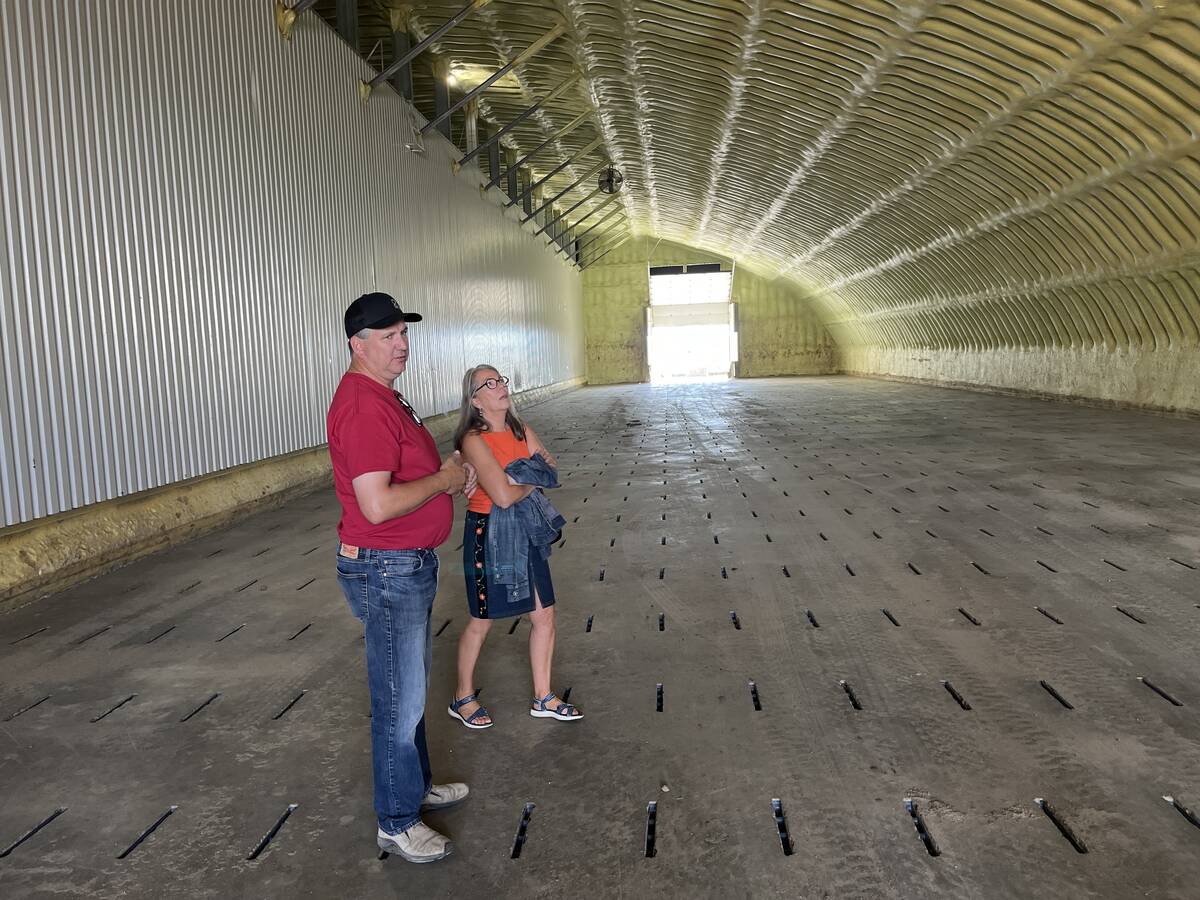Lana Missens-George believes the car accident that cost her the use of her legs saved her life.
In September 2003, she and her husband rolled their vehicle on loose gravel while driving impaired on the Ochapowace First Nation in eastern Saskatchewan.
Her husband recovered from a broken neck, but Missens-George suffered a severed spine, multiple fractures and a collapsed lung. She spent three weeks in hospital and another five months in a rehabilitation facility.
“I don’t know where I’d be if that hadn’t happened,” said Missens-George, a finance manager at the All Nations Healing Hospital in Fort Qu’appelle, Sask.
Read Also

Potato farm requires year-round management
The most recent Open Farm Day in Alberta showcased agricultural producers across the province educating the general public about the process that is required is to get food to their table.
“I was abusing alcohol to a point where it just about killed me. It took that to change my life.”
The Valley Lilies Women’s Institute recently invited Missens-George to speak about life as a para-plegic in Fort Qu’appelle, Sask.
Marian Ogrodnick, president of the Saskatchewan Women’s Institute, said Missens-George has maintained a positive attitude de-spite her setbacks.
“She hasn’t felt sorry for herself,” she said.
“If you put your mind to it, you can overcome most obstacles.”
She said Missens-George’s presentation alerted WI to the need for public access for the handicapped, including ramps, sidewalk and building entry points.
It’s a message Ogrodnick plans to take back to SWI and the town council in Fort Qu’appelle.
Such barriers initially made Missens-George feel “trapped and a burden.”
“I hope somebody can give me a push,” she said of everyday difficulties such as wheeling into the local bank.
At home in Fort Qu’appelle, the mother of five and grandmother of four manages with a series of lifts, home care and family support and drives a van equipped with hand controls. She needs help to get out of bed, uses catheters and receives massages to deal with sore arms and muscle spasms common in paraplegics.
“I’m in a sweat till I finish dressing due to all the rolling around,” she said of the everyday tasks that challenge her.
The accident was also difficult for her family. Her children, including one who was only three years old, were separated and sent to different relatives during her long convalescence.
It was her strong desire to reunite with her family that motivated her through her recovery.
Missens-George said she wants to be a role model for her children. Since the accident, she completed a bachelor degree in business and is training to be a certified aboriginal financial manager.
She is a board member and peer support volunteer Spinal Cord Injury Saskatchewan.
Raised on the Pasqua First Nations, Missens-George is also a board member for the Saskatchewan chapter of the Aboriginal Financial Officers Association.
“I show them anything is possible. Don’t let nothing stop you,” she said. “I just don’t want them to live the life I was leading that got me to this point.”
Missens-George takes her message to groups such as Students Against Drinking and Driving.
“If I can even just change just one of the students’ lives, I think I have accomplished what I wanted to do.”
A 2010 report commissioned by the Rick Hansen Institute found that 85,556 people were living with spinal cord injury in Canada.
This number included 48,243 with tetraplegia, which is impairment of the arms, trunk, legs and pelvic function, and 30,324 people with paraplegia, in which arm function is not impaired.
An average of 4,259 new cases of spinal cord injury occur each year, half of which are due to traumatic injury and most are sustained in motor vehicle collisions.
















